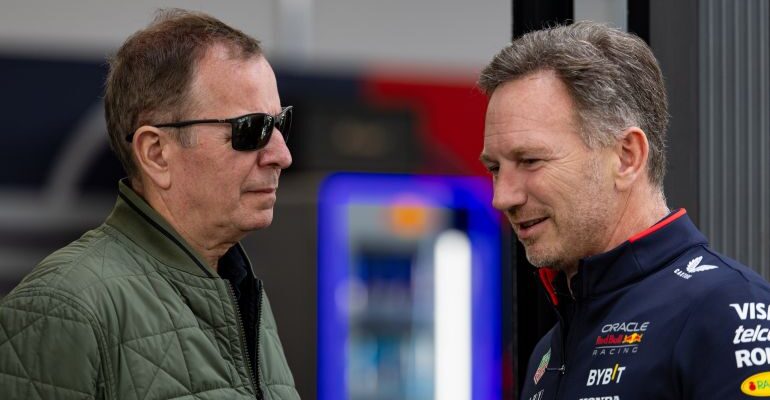The world of Formula 1 was recently caught off guard by the abrupt departure of Christian Horner from his long-held position as Team Principal of Red Bull Racing. After two decades at the helm, overseeing immense success including multiple world championships, his sudden removal has ignited a firestorm of speculation. Red Bull`s official statement confirming his exit offered no specific reasons, leaving pundits and fans alike piecing together a complex puzzle.
While the team`s communication remained tight-lipped, several potential factors, likely intertwining, are being discussed as contributors to this unexpected turn of events. It seems the foundation of Horner`s long tenure may have been eroded by a confluence of recent challenges and underlying tensions.
A Hint of Shifting Performance Dynamics?
Following a historically dominant 2023 season, Red Bull started 2024 strongly. However, a notable shift occurred mid-season, with competitors like McLaren and Ferrari demonstrating significant closing speed and even surpassing Red Bull`s pace at times. While Max Verstappen continued to salvage impressive results, the team`s once insurmountable lead in constructors` points diminished. This dip, although relative given their continued winning, represented a change in momentum within a stable regulatory period – a scenario not commonly seen in recent F1 history. While Horner`s previous success suggests a single season`s relative performance dip wouldn`t be the sole cause, it may have added pressure or served as a backdrop to other issues.
The Persistent Second Seat Conundrum
Another area that has consistently drawn scrutiny is Red Bull`s struggle to find a consistent and competitive teammate for Max Verstappen. Recent years have seen drivers come and go with contracts sometimes cut short, leading to what has occasionally appeared to be a one-car team operation. The rapid rotation and performance gap for the second driver have, at times, seemed to reflect poorly on the team`s driver management strategy or perhaps the inherent difficulty of the car outside of Verstappen`s unique abilities. This ongoing situation, regardless of the underlying cause, remained an uncomfortable subplot under Horner`s leadership.
Internal Power Plays and Influence
The landscape within the wider Red Bull organization has undeniably shifted since the passing of co-founder Dietrich Mateschitz in 2022. This led to apparent power dynamics emerging at the top. Christian Horner reportedly had strong support from the Thai ownership stake, particularly Chalerm Yoovidhya. However, speculation suggests this support may have wavered. Concurrently, the Austrian side of the business, represented by Mark Mateschitz and figures like Oliver Mintzlaff (Head of Sport), seemed to operate with different priorities or views. The complex relationship dynamics, including past public disagreements involving Max Verstappen`s father, Jos, and reports of conversations between the Verstappen camp and rival teams, also highlight potential leverage points within this internal power struggle. The question of Max`s long-term future, despite a lengthy contract, adds another layer of intrigue.
The Echoes of Past Allegations
Despite an internal investigation clearing Christian Horner of allegations of inappropriate behavior made in early 2024, and a subsequent appeal being dismissed, the episode undoubtedly cast a shadow. While officially resolved, such controversies can create internal friction and potentially strain relationships at various levels within the organization. The timing of some high-profile personnel departures seemed to coincide with the aftermath of this situation, suggesting it may have contributed to underlying tensions or shifts in key alliances.
Significant Personnel Departures
The recent exits of several pivotal figures from Red Bull Racing also fueled speculation about the internal atmosphere. The departure of legendary designer Adrian Newey, who had been with the team since its early days and whose relationship with Horner reportedly cooled, was a major blow. Preceding Newey`s exit were others, including Chief Designer Rob Marshall and Sporting Director Jonathan Wheatley. Losing such long-serving and influential individuals in a relatively short period, particularly figures instrumental in the team`s success, is rarely a positive sign and could be interpreted as symptomatic of deeper issues or a changing environment under the current leadership.
Whispers about the 2026 Engine Project?
Looking ahead, the upcoming 2026 regulations represent a significant technical challenge, particularly for Red Bull Powertrains as they embark on building their own power unit. The complexity of these new engine rules is immense. While information is guarded, the F1 paddock often buzzes with rumors about who is ahead in development. Speculation, though unconfirmed, that Red Bull`s engine project might be facing unexpected hurdles could potentially add pressure on the team`s leadership and influence the perspectives of the wider Red Bull hierarchy regarding the future direction and personnel required.
In conclusion, Christian Horner`s departure remains officially unexplained, but the convergence of these potential factors – a recent performance plateau, persistent driver lineup issues, complex power dynamics within the parent company exacerbated by the aftermath of earlier controversies, and the loss of key technical talent – painted a picture of increasing pressure and shifting support. Whether any single factor was decisive or if it was the cumulative effect of these elements is unclear. The full story behind the exit of Formula 1`s longest-serving team principal during a period of relative, if slightly diminished, success is likely more intricate than any single explanation, and its true dimensions may only become apparent over time.









